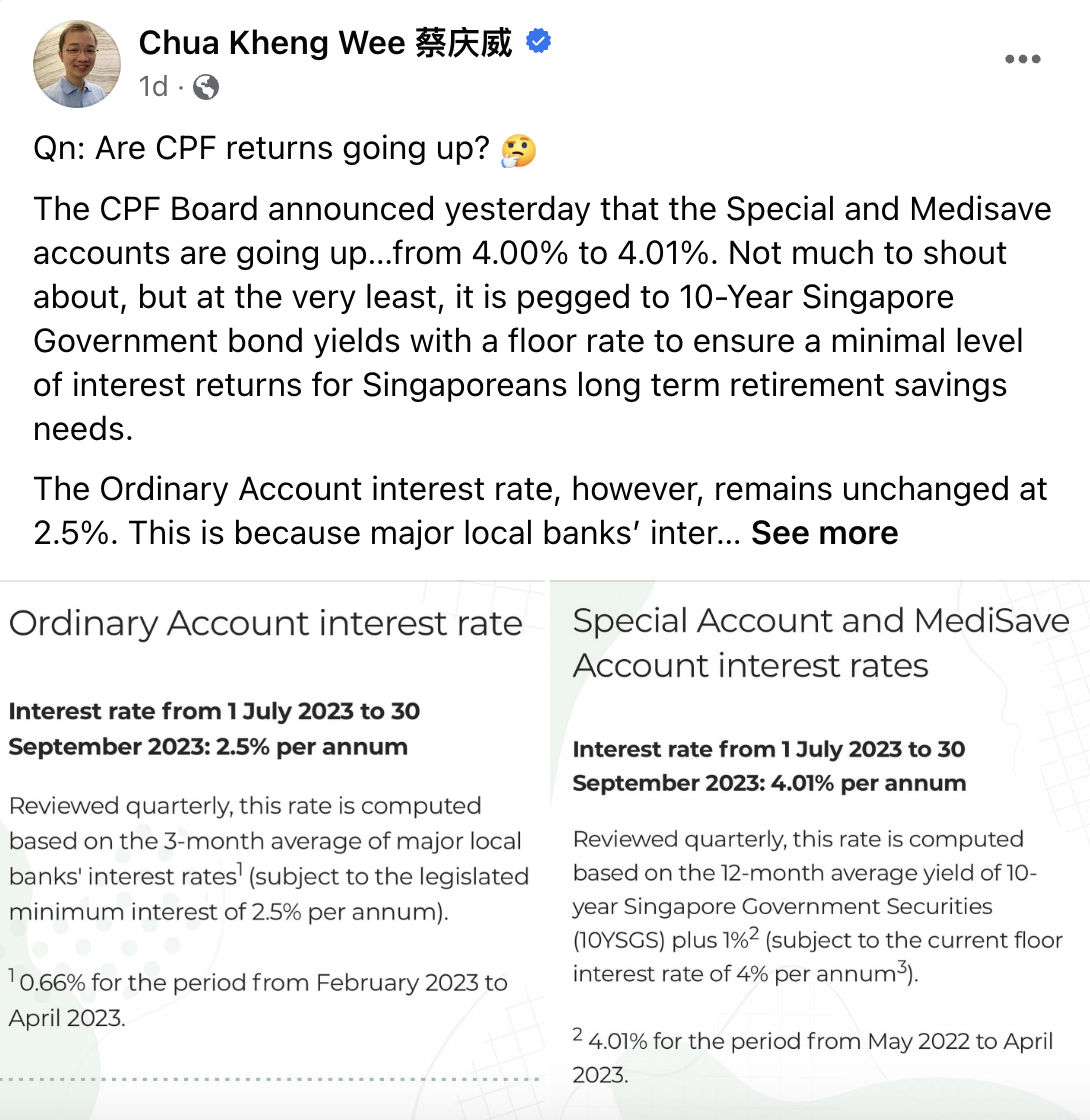SINGAPORE: Workers’ Party MP Louis Chua (Sengkang GRC) noted in a May 30 (Tuesday) Facebook post that Special and Medisave accounts are going up from 4.00 per cent to 4.01 per cent, based on an announcement from the CPF Board on May 29.
He wrote that the Ordinary Account interest rate has remained unchanged, adding, “I have been arguing in Parliament that the OA formula has been unchanged since 1999, and it is time that we relook reviewing this formula, to at least better take into account the current nature of fixed deposit and savings rates from the three local banks – even if the CPF’s preference is not to consider inflation in the formula.“

And while Mr Chua acknowledged that the increase in Special and Medisave accounts is “not much to shout about”, it is at least “pegged to 10-Year Singapore Government bond yields with a floor rate to ensure a minimal level of interest returns for Singaporeans long term retirement savings needs.”
He noted that the interest rate of the Ordinary Account is still the same because the interest rates of local banks over the past three months “are computed to be at…0.66%!”
Mr Chua further explained that “it’s quite clear that interest rates are significantly higher than the 0.66% which the CPF computed” when it comes to either fixed deposit rates or savings accounts across the three largest banks in Singapore, including the UOB One, OCBC 360 or DBS Multiplier accounts.
Moreover, Mr Chua added that inflation was at 5.7 per cent last month, while even the core inflation, the change in prices of goods and services, except food and energy sectors, was at 5 per cent.
“Even if inflation rates come down…it could well settle at higher levels vs. recent history,” he wrote.
“To ensure Singaporeans’ retirement savings can keep up with inflation, or at least reflect market interest rates, I do hope the Government can review the CPF OA formula in a timely manner. #MakingYourVoteCount #WorkersParty #CPFsg #RetirementPlanning,” added the Sengkang GRC MP. /TISG
WP’s Louis Chua: Inflation a problem for many, not only low-income Singaporeans

